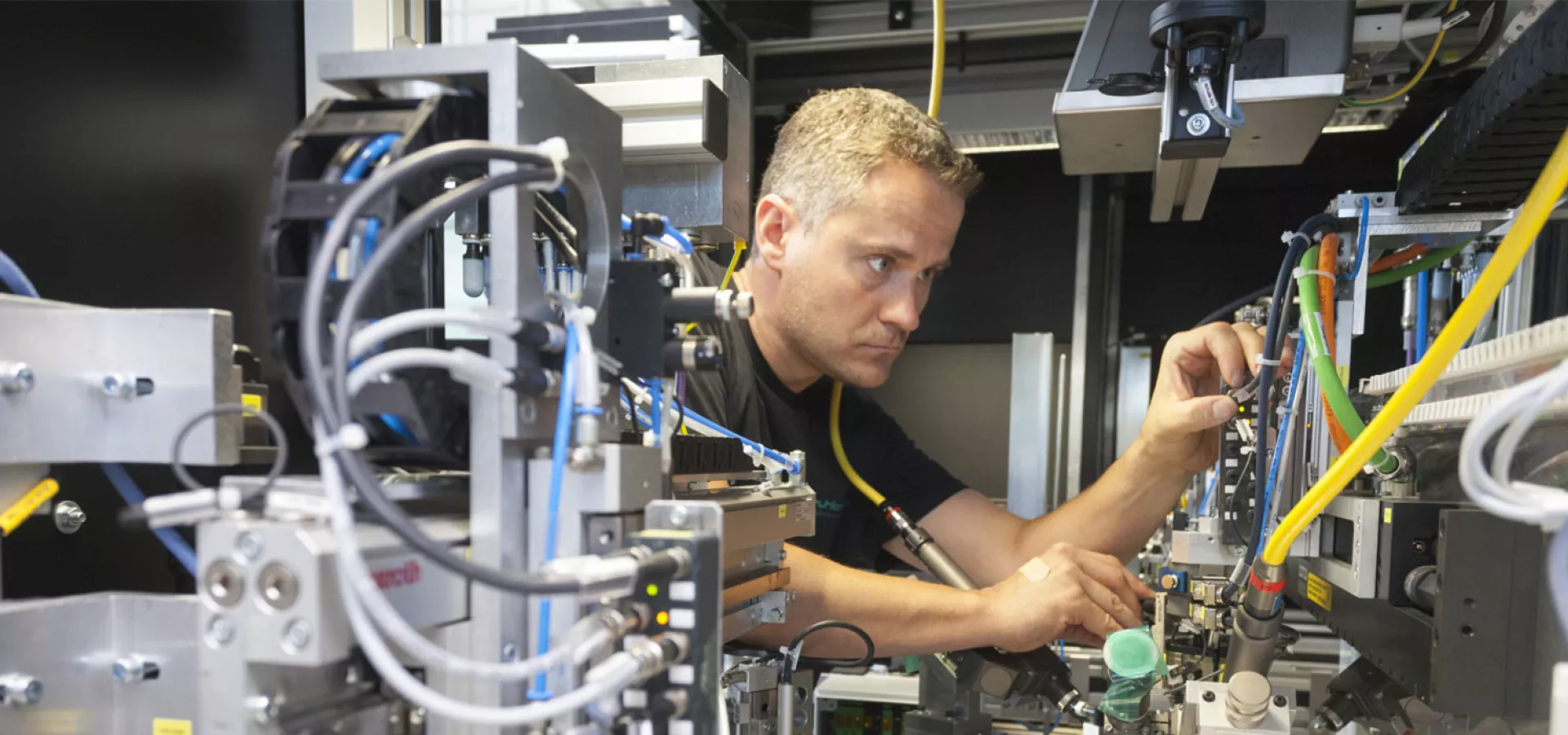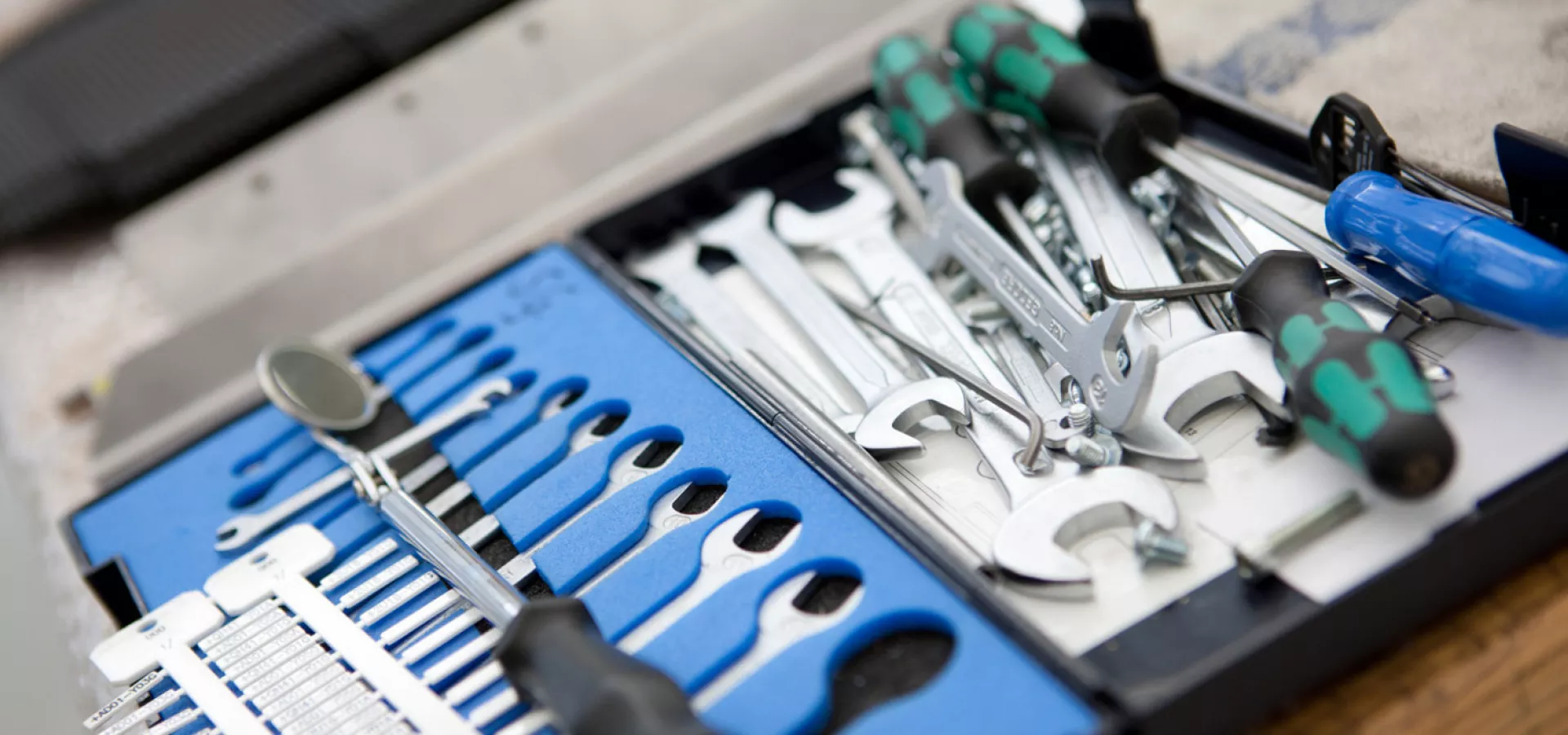
Virtual commissioning - more efficient commissioning of machines and systems
The virtual commissioning of industrial production plants and machines enables a time-accelerated, cost-saving and more efficient real commissioning. Furthermore, it can help to shorten training periods, save material costs and minimize downtimes for expansions.
What is virtual commissioning?
Industrial production plants as well as individual machines and robots are often the result of months or even years of planning and design work. The more individual and complex a plant or machine is, the trickier the design is. But only if all components work together perfectly, a smooth functioning of the plant is guaranteed. This is often the problem: Whether a system works 100% optimally can usually only be determined after commissioning. And in many industrial projects this alone takes up a quarter of the total running time. This means that even before a plant can be put into operation, it devours vast sums of money and takes up an enormous amount of time. If it is determined during commissioning that individual processes have to be adapted or optimized, the costs increase even more, because making changes to the already completed plant is extremely time-consuming and cost-intensive.
Virtual commissioning helps to avoid these difficulties: After all, this is a simulated commissioning using a so-called "digital twin" or "digital prototype". Behind the digital twin is a digital simulation model that can be used to realistically depict all the machine's work processes. This makes it possible to determine even before the actual commissioning, whether and how the machine works and whether any optimization measures need to be taken.
What are the advantages of virtual commissioning?
A cleanly executed virtual commissioning offers a whole range of advantages. Particularly noteworthy are the cost and time savings. Although the programming of a digital plant simulation also involves a financial outlay, this is clearly outweighed by the savings made during the later real commissioning. Convince yourself!
Early detection of weak points and optimization potentials
To process an industrial plant, once it has been installed and put into operation, costs a lot of time and is only possible with a lot of work. Virtual commissioning helps to reduce these costs to a minimum: If initial simulation models are created during the planning and design phase, potential weak points and optimization potentials can be identified as early as possible and processed accordingly. This makes later changes obsolete and thus saves time and material, while production downtimes are prevented.
Cycle time optimization
Thanks to virtual commissioning, not only can improvements be made to the machine itself, but also to the way it works. If cycle times are not fast enough or if collisions occur in the production process, this can be remedied from the outset. In the end, only systems and machines that have already been fully optimized and therefore provide maximum performance from the outset are installed.
Shorter downtimes for later modifications
A further advantage of digital system simulations is that they can be used for subsequent modifications, extensions and conversions. These normally entail cost-intensive downtimes - but not if possible expansions are planned and simulated in advance on the digital twin. In this context, however, it is important to have comprehensive digital documentation of all conversion and repair measures carried out on the press. This is the only way the digital twin can realistically simulate the way the system works and allow the appropriate conclusions to be drawn.
Safe testing of failures
Incidents can occur in any company, which is why production plants and machines should have appropriate safety precautions. Testing these under real conditions is of course not possible due to the potential danger to employees and workers. However, thanks to virtual commissioning, it is possible: the simulation allows all fault scenarios to be programmed and tested to see how the machine would behave in an emergency. This helps to uncover potential safety gaps and to eliminate them during the design phase.
Virtual trainings
Every industrial plant needs an appropriate expert to operate it. Although machines can take on more and more complex tasks and thus work even more cost-savingly and efficiently, they only work if they are operated correctly. This usually requires time-consuming staff training, which naturally can only be carried out after the plant has been commissioned. Thanks to the integration of virtual and augmented reality, this step can be preferred in conjunction with virtual commissioning: On the digital twin, control and operating elements can be used and thus the control of the machines can be learned. This also saves a lot of money and time.
The advantages of virtual commissioning at a glance:
- Detecting and eliminating weak points and optimization potential
- Accelerate cycle times
- Extensions and modifications with reduced downtimes
- Simulation of incidents
- virtual training courses
- no cost-intensive material for test commissioning necessary
- comprehensive time saving
- Large cost reduction (troubleshooting, modifications, commissioning)
How does virtual commissioning work and what do you need to know?
Virtual commissioning can only be effective if the simulation model is programmed in such a way that it actually accurately reflects the real behavior of the plant. Our technicians develop the digital prototypes based on the CAD data of the customer's plants in order to create a simulation that is as realistic as possible. Nevertheless, there are, of course, limits to the simulation capability of a plant commissioning - errors during installation as well as operating errors cannot be programmed in advance. Apart from that, virtual commissioning is an excellent opportunity for large corporations as well as small and medium-sized companies to save a lot of time and money when commissioning production machines and plants. Convince yourself and contact us for further information.
